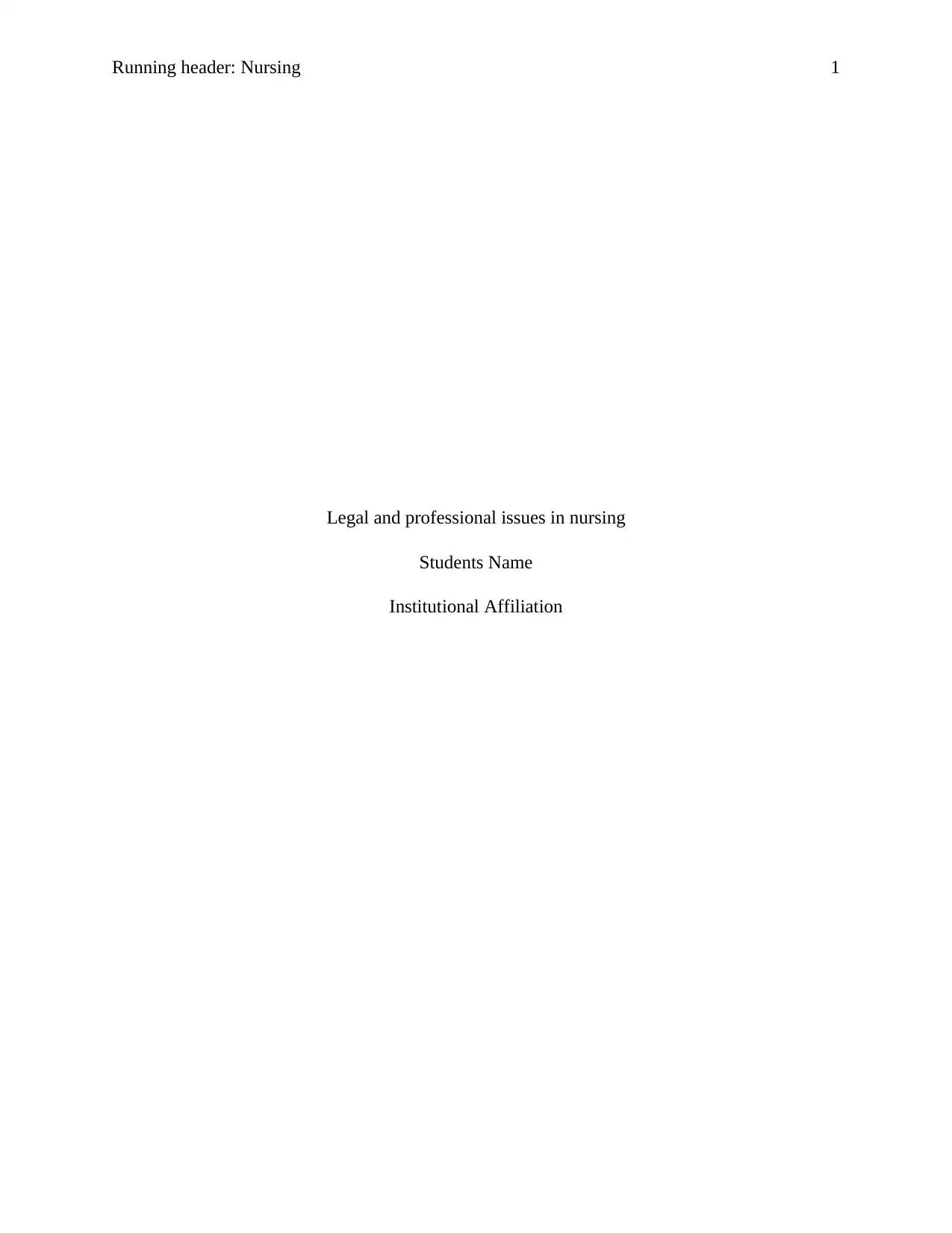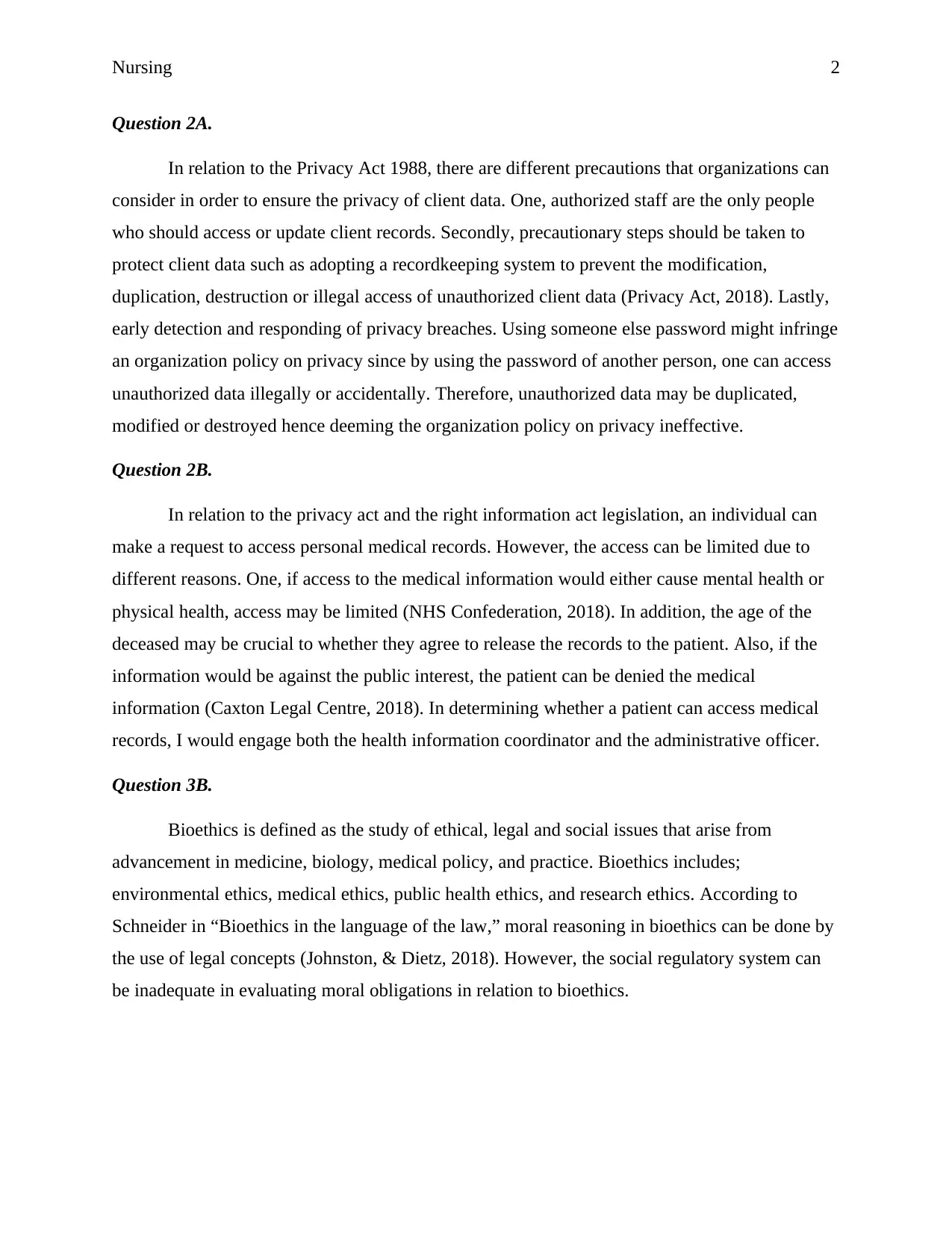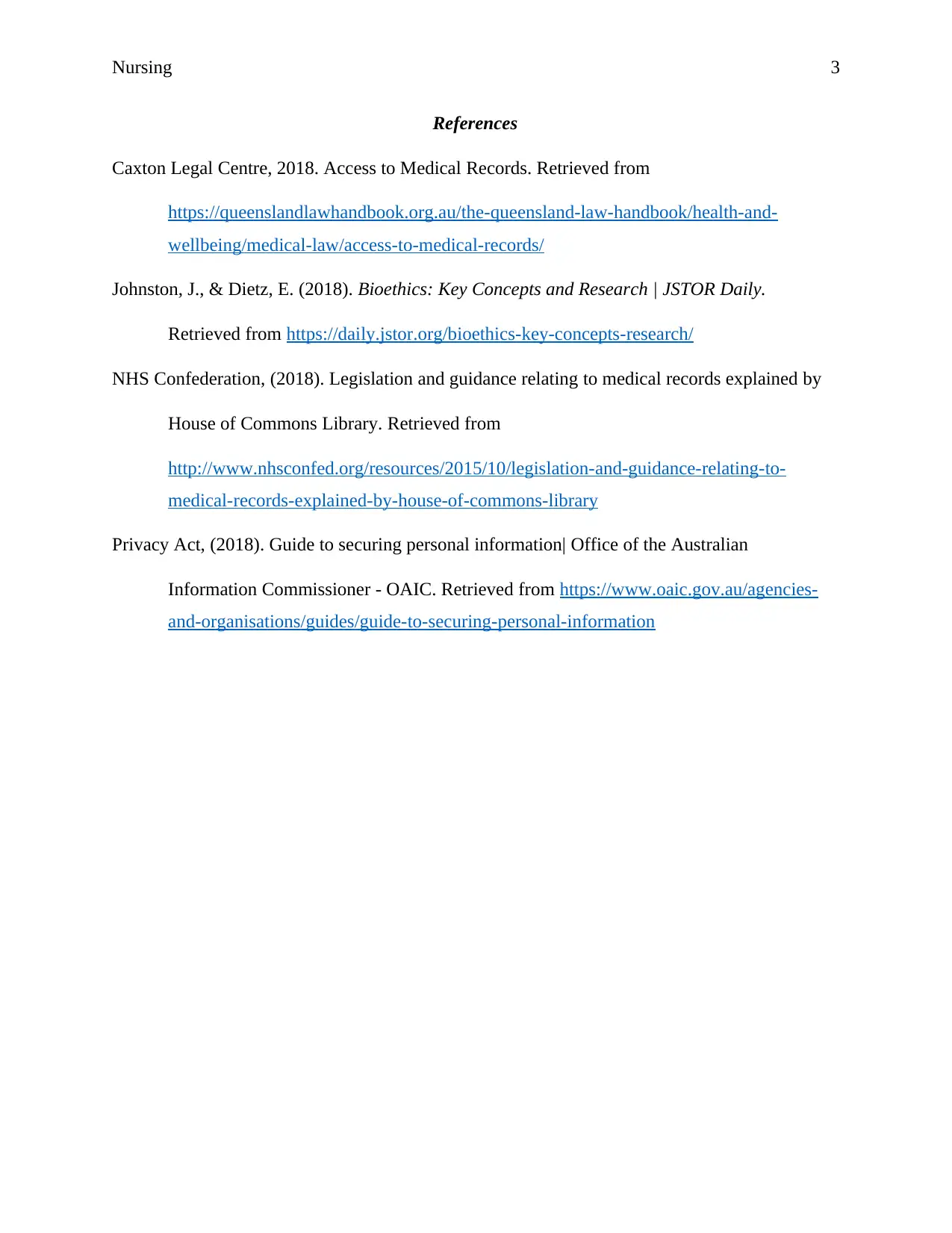Report on Privacy Act, Bioethics, and Medical Records in Nursing
VerifiedAdded on 2023/05/30
|3
|502
|90
Report
AI Summary
This report examines the legal and ethical considerations within nursing practice, focusing on the Privacy Act of 1988, bioethics, and patient access to medical records. The report analyzes the importance of protecting client data through authorized access, secure record-keeping, and prompt response to privacy breaches. It also explores the limitations on accessing medical records, considering factors like the patient's mental and physical health, the deceased's age, and public interest concerns. Furthermore, the report discusses bioethics, including its ethical, legal, and social issues, particularly in medical advancements and how moral reasoning can be applied to bioethical dilemmas. The report references relevant legislation and guidance to support its analysis and provide a comprehensive understanding of these crucial aspects of nursing practice.
1 out of 3










![[object Object]](/_next/static/media/star-bottom.7253800d.svg)